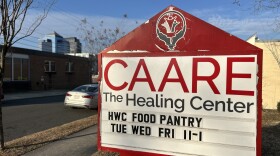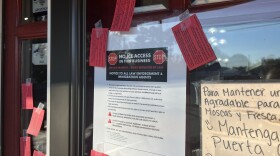Cecilia Polanco’s parents did not dream of their daughter owning a food truck when they emigrated from El Salvador to the United States in the early 1980s. Their expectation was that she would get a respectable profession after college, or even better, a career, like her older sisters who work in law and insurance.
So when she proposed the idea of a pupusa business, her mother naturally had some concerns — Polanco did not even know how to make the traditional Salvadoran fare. It became clear to Polanco that — after graduating from the University of North Carolina at Chapel Hill — she would have to attend what she calls “The School of Pupusas” under the instruction of her aunt and mother. With the guidance and support of her family, Polanco has leveraged her grandmother’s recipe into a force for change in Durham. The food truck So Good Pupusas funds a nonprofit that Polanco founded to provide college scholarships to undocumented students and DACA recipients. Polanco hustles to make ends meet, yet continues improving her food truck’s model for economic justice and environmental sustainability. Those values permeate all of her work. In addition to being the CEO of So Good Pupusas, she is the youth coordinator at El Centro Hispano and serves on various boards, including Durham’s Racial Equity Task Force, the Gap Year Association and LatinxEd. Host Frank Stasio talks with Polanco about balancing work, passions and mental health as a young entrepreneur.
INTERVIEW HIGHLIGHTS:
How Cecilia describes pupusas:
Pupusas are traditional Salvadoran food. You can get them anywhere, anytime in El Salvador: breakfast, lunch, dinner. They're a thick tortilla with a filling inside. The ones that we always have on the truck are pork and cheese and bean and cheese. And they come with the toppings, curtido, which is pickled cabbage and carrots. The salsa, typically for us is not spicy, but since we have a lot of Mexicans in the area and different tastes ... We started making some spicy salsa for people who enjoy that.
On her parents’ reasons for leaving El Salvador:
My dad, having been in the military before, he talks about being recruited by both sides and facing that choice that really — whatever choice he would make — he'd be someone's enemy. And so he made the tough choice to leave El Salvador for the United States.

On the importance of education:
I'm a proud product of our Durham Public Schools. I graduated from Northern [High School]. And as the second person in my nuclear family to go to college, I was really nervous about being able to afford college ... I give a lot of credit to where I am now my scholarship I received the Morehead-Cain scholarship and the [Global] Gap Year fellowship. They just opened the door of opportunities for what was possible for me to do at UNC where I had so many options, tools and resources at my fingertips.
On her maternal grandmother:
She was very well known both in El Salvador and here. She was just a symbol in the community, someone who you could go to because she had a very strong faith. She was a healer. She was also a partera, a midwife ... She would reposition babies in the stomach during pregnancy. Pregnant women would come and say: Can you just check on the position? Or maybe they're flipped and she would do all that through the knowledge that she inherited from other healers.
I had to put in the work to learn the tradition of of El Salvador from my mother, traditions that she learned from her mother, my grandmother. - Cecilia Polanco
On learning to make pupusas:
It was almost like a re-education. Yes, I had a bachelor's, but I couldn't make pupusas. ...I had to put in the work to learn the tradition of of El Salvador from my mother, traditions that she learned from her mother, my grandmother ... It affirmed my Salvadorean-ess, and I was really proud. My parents are proud of me for going to school and doing what I do, but they're really proud of me for accomplishing what I've done so far with the food truck and learning how to make pupusas.
On balancing social values with the bottom line:
It still is hard to build the type of business we want to be. We do want to get to the point where we're able to hire people part-time and full-time at a living wage. And I think it's good to have those goals from the beginning and a strategy to get there. Very quickly, we adopted compostable bowls and recyclables on the truck. And hopefully, one day, I can put solar panels on my truck. That is a business choice, and those choices cost money. Profit is also a choice — how much profit and where that money goes to, where you reinvest it. I found that it costs more money to build it in from the beginning, but it's how you can get it right. I think it's harder to do things a certain way that are more cost-effective and then try to turn around and say: Alright now how do we build in some of the things that matter?

On the mission of Pupusas for Education:
The business started as a means to an end: to fund and sustain the scholarships. Because we really wanted them to be sustainable, and not just fundraising. And if we don't raise the funds, we don't give those scholarships. So the food truck operates like a business, and it makes the money. It sells the pupusas. And then money gets donated to Pupusas for Education, and there it is managed and distributed by a team of students at UNC and our board. And so that's how we've done it. We started with the goal of giving one to two scholarships a year to students who come from Wake, Durham and Orange counties to do anything that they wanted post-graduating high school, whether it's community college or barber school, cosmetology, a four year university, just for them to continue pursuing [education].










